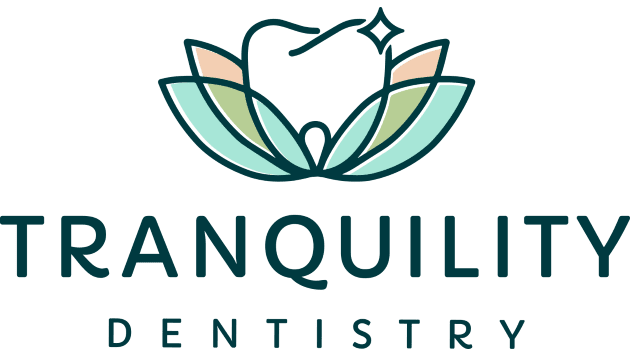
The Mouth-Body Connection
How Oral Health Impacts Your Overall Wellness
When we think about our health, it’s easy to overlook the importance of oral hygiene. However, recent research underscores the vital role oral health plays in our overall well-being. The condition of our teeth and gums is not just about aesthetics; it’s a window into our body’s general health. From heart disease to diabetes and even cognitive decline, the health of our mouth can have far-reaching effects on our entire body. This blog will explore the critical link between oral health and systemic diseases, highlighting why maintaining good oral hygiene is essential for more than just a beautiful smile.

Understanding the Mouth-Body Connection
The connection between oral health and overall wellness is primarily due to the role of bacteria. Our mouths are full of bacteria, most of which are harmless. However, the mouth is the entry point to both the digestive and respiratory tracts, and some of these bacteria can cause disease. Normally, the body’s natural defences and good oral hygiene practices keep these bacteria under control. But without proper oral care, bacteria can reach levels that might lead to oral infections, such as tooth decay and gum disease.
Moreover, the inflammation and infections in the mouth can have systemic consequences. Bacteria from the mouth can enter the bloodstream, causing inflammation in other parts of the body, and contributing to the development or worsening of systemic conditions.
Oral Health and Heart Disease
One of the most significant connections between oral health and systemic disease is with heart disease. Research has shown that people with periodontal (gum) disease are almost twice as likely to have coronary artery disease compared to those without periodontal disease. Gum disease can increase the risk of heart disease through inflammation and the spread of bacteria.
When gum disease progresses, bacteria can enter the bloodstream, where they can attach to fatty deposits in the arteries. This process, known as atherosclerosis, can lead to the formation of plaque in the arteries, increasing the risk of heart attacks and strokes. This makes maintaining good oral hygiene not just a matter of keeping your teeth and gums healthy but also a critical component of heart health.

The Connection Between Oral Health and Diabetes
The relationship between oral health and diabetes is bidirectional. Poor oral health can make it more challenging to control blood sugar levels, and having diabetes can increase the risk of developing gum disease. Diabetics are more susceptible to infections, and gum disease is a common complication of diabetes.
Gum disease can increase blood sugar levels, complicating diabetes management and making it more difficult to control. This creates a vicious cycle where poor oral health worsens diabetes, and uncontrolled diabetes exacerbates oral health issues. Therefore, diabetics need to be particularly vigilant about maintaining good oral hygiene to prevent complications.
Oral Health’s Impact on Respiratory Conditions
Respiratory conditions, such as pneumonia, can also be linked to oral health. Bacteria from the mouth can be aspirated into the lungs, leading to respiratory infections, particularly in vulnerable populations such as the elderly or those with compromised immune systems.
For example, chronic periodontitis (a severe form of gum disease) can lead to an increased risk of respiratory infections like pneumonia. This is because the bacteria from the mouth can be inhaled into the lungs, causing infections that may worsen or trigger conditions like chronic obstructive pulmonary disease (COPD).
Oral Health and Cognitive Decline
Emerging research has suggested a possible link between gum disease and Alzheimer’s disease. The chronic inflammation associated with gum disease may contribute to brain inflammation, which is a hallmark of Alzheimer’s disease. Some studies have found that people with chronic gum disease for ten years or more were 70% more likely to develop Alzheimer’s than those without periodontal disease.
While research is ongoing, these findings highlight the importance of maintaining good oral health as part of a strategy to protect cognitive function as we age.
Pregnancy and Oral Health
Pregnant women need to be especially mindful of their oral health. Hormonal changes during pregnancy can increase the risk of developing gum disease, which in turn can affect pregnancy outcomes. Gum disease has been linked to preterm birth and low birth weight, which are serious health risks for newborns.
Maintaining good oral hygiene during pregnancy is crucial. Regular dental check-ups, brushing, and flossing can help prevent gum disease and its potential impact on both the mother and baby’s health.

Practical Tips for Maintaining Oral and Overall Health
Given the clear connection between oral health and systemic health, it’s essential to incorporate good oral hygiene practices into your daily routine:
- Brush and Floss Regularly: Brush your teeth at least twice a day and floss daily to remove plaque and prevent gum disease.
- Regular Dental Check-Ups: Visit your dentist regularly for cleanings and check-ups. Early detection and treatment of dental issues can prevent them from becoming more serious health problems.
- Healthy Diet: Eat a balanced diet that limits sugary snacks and drinks. A healthy diet supports both oral and overall health.
- Quit Smoking: Smoking is a significant risk factor for gum disease and other oral health problems. Quitting smoking can greatly improve your oral and overall health.
Conclusion
Oral health is deeply connected to our overall well-being. By understanding the mouth-body connection, we can take proactive steps to protect not just our teeth and gums but our entire body. Regular dental care, proper oral hygiene, and a healthy lifestyle are essential components of a comprehensive approach to health. Don’t overlook your oral health—it’s a critical part of maintaining a healthy body and mind.
Read more of our blogs here to understand the mysteries of our oral health.
Contact us now to schedule an appointment and prevent dental issues before they start.
